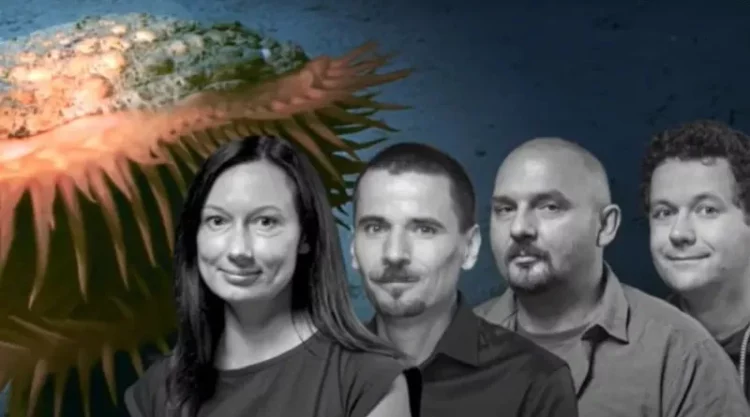In an extraordinary scientific achievement, researchers from Poland and Norway have uncovered over 300 previously unknown marine species during an oceanic expedition near the coasts of Ghana. This discovery, akin to exploring the surface of the Moon, marks a significant advancement in our understanding of marine biodiversity.
- More News from Poland on our Homepage.
- Sign up to our Newsletter
The western coast of Africa, particularly its deep-sea regions, has been one of the least explored areas on the planet. The international scientific project, involving experts from the University of Łódź and the Norwegian Marine Institute in Bergen, targeted these uncharted depths, reaching down to 1000 meters.
Professor Krzysztof Pabis from the University of Łódź, the project coordinator, compared the research to lunar exploration in terms of its scope and significance. The team collected 270 samples over a 500 km stretch and down to depths of a thousand meters, making this one of the largest projects in the Atlantic.
- Follow us on Facebook and X (Twitter) to stay up to date with News from Poland.
In an area of just 12 square meters, roughly the size of a small apartment, the researchers identified about 800 species, including 300 new to science. This project also helped identify the most vulnerable areas of the sea floor that need protection.
Impact and Ongoing Research
The main achievement of this expedition is the enhanced understanding of the relationships between marine organisms and environmental factors, especially human-induced pollution. The expedition took place in 2012, but its results are being published gradually due to the extensive analysis required.
The findings, documented in films by the University of Łódź and showcased at the Orientarium ZOO in Łódź, provide crucial insights into the impact of human activities on the marine environment, including natural resource extraction and climate change. These results have been published in prestigious scientific journals like “Oceanologia” and “Science of The Total Environment,” serving as a vital reference for future ecological and zoogeographical research.
This groundbreaking discovery by the Polish and Norwegian scientists not only adds to our knowledge of marine biodiversity but also underscores the importance of exploring and protecting our oceanic frontiers. As we continue to uncover the mysteries of the deep sea, we are reminded of the intricate and fragile nature of our planet’s ecosystems.


















